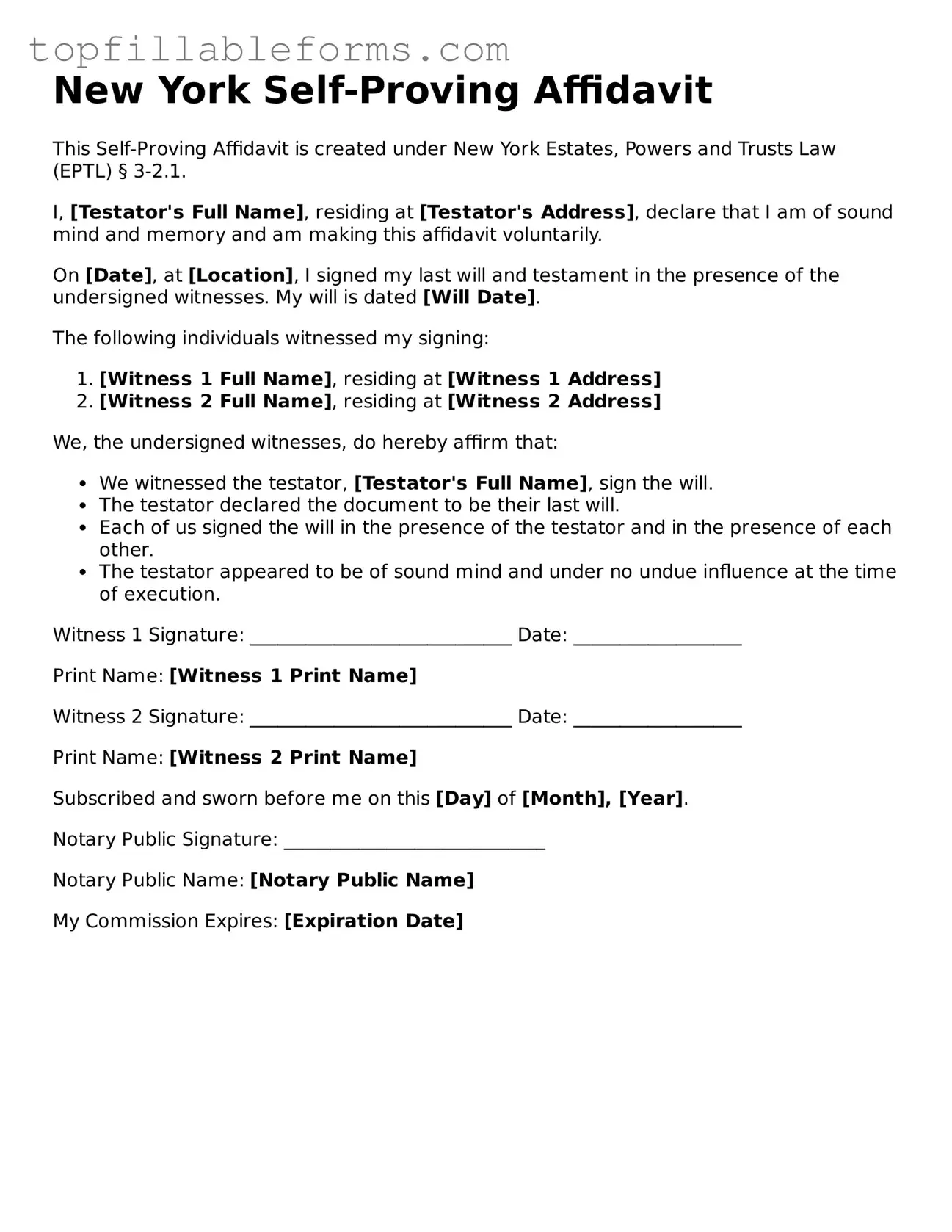Attorney-Verified Self-Proving Affidavit Template for New York
The New York Self-Proving Affidavit is a legal document that allows a testator's will to be validated without requiring witnesses to appear in court. This form simplifies the probate process by confirming that the will was executed properly. By including this affidavit, individuals can ensure their final wishes are honored with less hassle for their loved ones.
Open Self-Proving Affidavit Editor Here

Attorney-Verified Self-Proving Affidavit Template for New York
Open Self-Proving Affidavit Editor Here
Finish the form now and be done
Finish your Self-Proving Affidavit online by editing, saving, and downloading fast.
Open Self-Proving Affidavit Editor Here
or
▼ PDF File
